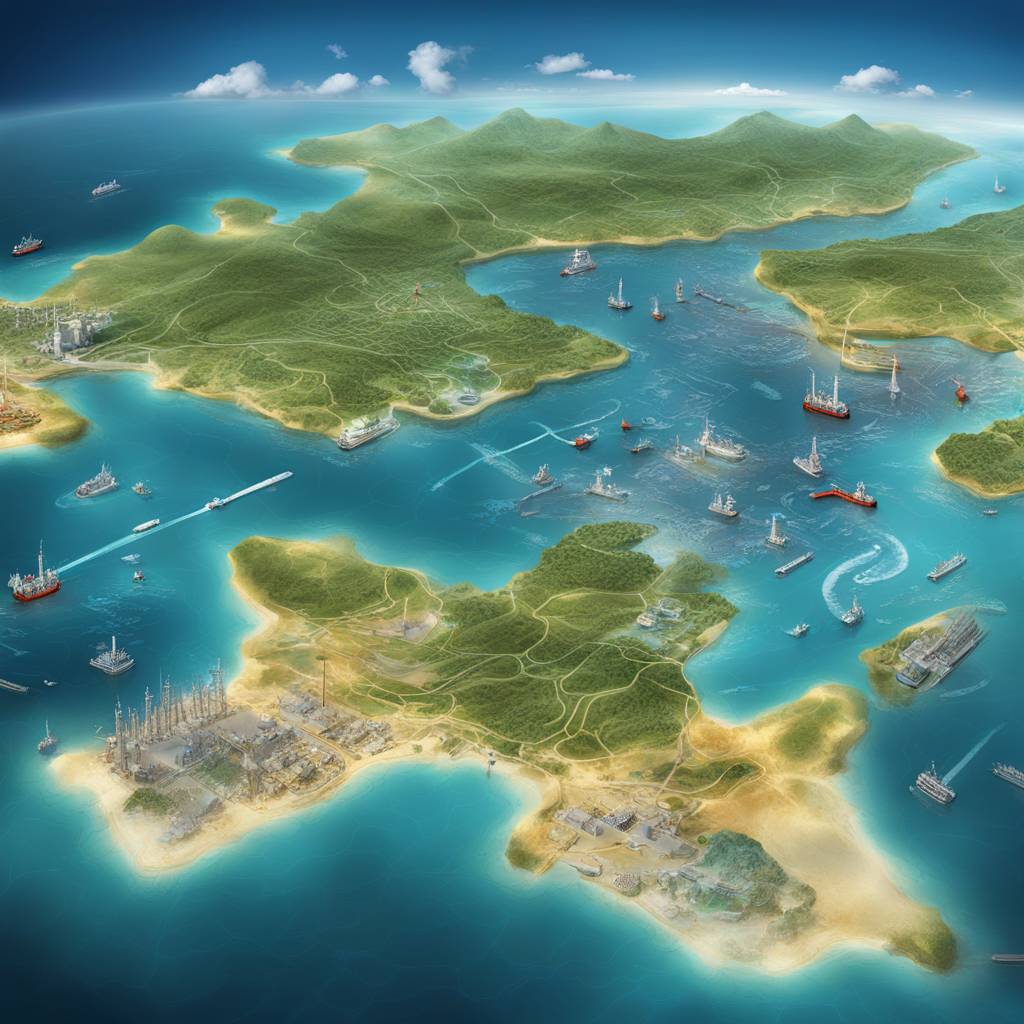Coastal seas play a crucial role in the global carbon cycle as a transition zone between land and ocean. A recent study led by Dr. Moritz Mathis from the Universität Hamburg and Helmholtz-Zentrum Hereon has shown that CO2 uptake is more intense in coastal seas compared to the open ocean. This finding highlights the importance of understanding the distribution of CO2 emissions and the exchange processes between the atmosphere, ocean, and land. By developing a new ocean model called ICON-Coast, researchers were able to simulate the transport, storage, and turnover of carbon in the global coastal ocean for the first time, offering new insights into the effects of climate change on coastal areas and marine ecosystems.
Historically, climate models have treated land and ocean as separate entities, neglecting the transport of carbon into coastal seas through processes such as river inputs, coastal erosion, and tidal flats. With the enhanced resolution and more realistic representation in ICON-Coast, researchers can better explore the impacts of climate change on coastal regions, including risks from heat waves, storms, and sea level rise. The model also illuminates the role of intense plankton growth in enhancing CO2 uptake in coastal seas, driven by climate-induced changes in circulation and increased nutrient inputs from rivers.
The study’s findings have significant implications for coastal management strategies and climate protection efforts. Disrupting biological production in coastal areas could weaken the ocean’s ability to absorb CO2, making climate mitigation more challenging. With the new model, researchers can evaluate approaches for CO2 avoidance, such as offshore wind energy, to assess their effectiveness and potential side effects. The researchers anticipate that the intensity difference in CO2 uptake between coastal seas and the open ocean will continue to strengthen with ongoing CO2 emissions, underscoring the importance of protecting and preserving coastal ecosystems.
Overall, the study emphasizes the critical role of coastal seas in the global carbon cycle and the need for a comprehensive understanding of their dynamics in climate models. By integrating coastal processes into climate simulations, researchers can better assess the impacts of climate change on coastal regions and marine ecosystems, as well as develop more effective strategies for mitigating CO2 emissions. The development of the ICON-Coast model represents a significant advancement in climate science, offering new insights into the complex interactions between land, ocean, and atmosphere in the transition zone along the coastlines.


